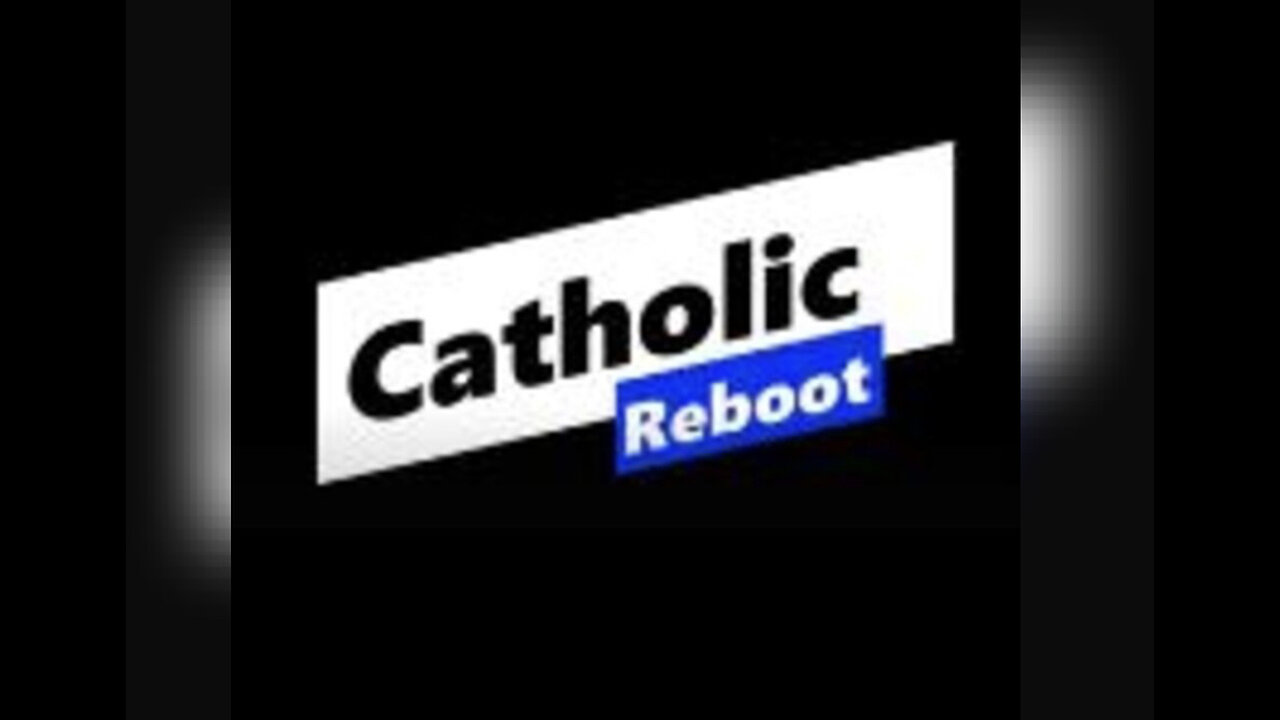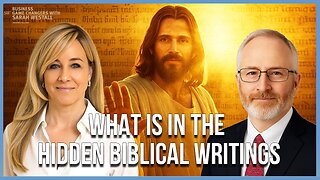Premium Only Content

Episode 3259: Book of the Bible - Zephaniah
The Book of Zephaniah: The Day of the Lord
ZEF-uh-nye-uh
Zephaniah 1: The Great Day of the Lord’s Wrath
Opening Prayer (Sharon, Host)
In the name of the Father, and of the Son, and of the Holy Ghost. Amen.
Lord, You spoke through the prophet Zephaniah to warn Your people of the coming day of judgment. Teach us to live with holy fear, to repent sincerely, and to trust in Your mercy. Through the intercession of Our Lady, Refuge of Sinners, may we be ready for the Day of the Lord. Amen.
Scripture Reading (Walt, Co-Host)
“The great day of the Lord is near, it is near, and exceeding swift: the voice of the day of the Lord is bitter, the mighty man shall there meet with tribulation. That day is a day of wrath, a day of tribulation and distress, a day of calamity and misery, a day of darkness and obscurity, a day of clouds and whirlwinds.” (Zephaniah 1:14–15)
Dialogue and Commentary
Sharon:
Zephaniah begins his book with fire. The Day of the Lord is coming not in centuries, not in vague terms, but ‘near and exceeding swift.’ And it won’t be gentle. It will be a day of wrath, darkness, and terror.
Walt:
And it starts at home. God tells Zephaniah that judgment will begin in Judah and Jerusalem. The chosen people had fallen into idolatry and complacency. Instead of turning to God, they trusted in wealth, alliances, and rituals without true repentance.”
Sharon:
That’s sobering. God warns: ‘I will utterly consume all things from off the face of the land’ (1:2). His wrath is not random; it’s a response to sin that has gone unchecked for too long.
Walt:
St. Jerome commented that Zephaniah teaches us about the final Day of Judgment as well. The devastation of Jerusalem was only a foreshadowing of the last day, when Christ will return to judge the living and the dead.
Spiritual Application
Sharon:
In our own day, many dismiss the idea of divine judgment. People say, ‘God is love,’ as if that means He ignores sin. But Zephaniah reminds us: love and justice go together. God is patient, but His patience is not approval.
Walt:
“The Dies Irae hymn from the Requiem Mass captures Zephaniah’s message perfectly: ‘Day of wrath, O day of mourning.’ It is meant to stir holy fear — not despair, but conversion.”
Reflection Question (Sharon)
Do I live as though the Day of the Lord is near, or have I grown complacent, like the people of Judah?
Zephaniah 2 — Seek the Lord, All You Meek
Scripture Reading (Sharon)
“Seek the Lord, all ye meek of the earth, you that have wrought His judgment: seek ye the just, seek the meek: if by any means you may be hid in the day of the Lord’s indignation.” (Zephaniah 2:3)
Dialogue and Commentary
Walt:
Here Zephaniah gives hope. While Chapter 1 thundered judgment, Chapter 2 offers a way of escape: seek the Lord, seek justice, seek meekness.”
Sharon:
It’s not the proud or the powerful who are spared, but the meek. God promises to hide His faithful ones in the day of wrath. This is the remnant the humble few who cling to Him when the majority fall away.
Walt:
The Fathers saw this as a prophecy of the Church. The faithful remnant of Israel points to the faithful remnant of Catholics who remain steadfast, especially in times of persecution and apostasy.
Sharon:
And notice how Zephaniah turns his prophecy outward too. He lists the nations Philistia, Moab, Ammon, Cush, Assyria. No people escapes God’s justice. He is Lord of all, not just Judah.
Walt:
Yet even in this, there’s a lesson: the proud nations fall, but the meek inherit. Christ echoes this in the Beatitudes: ‘Blessed are the meek, for they shall inherit the earth.’”
Spiritual Application
Sharon:
In our age, meekness is despised. The world values power, influence, and self-assertion. But God values humility, obedience, and trust. The meek will be preserved; the proud will perish.
Reflection Question (Walt)
Am I truly meek before God obedient to His commandments, humble in prayer, patient in suffering or do I cling to pride and self-reliance?
Zephaniah 3 — The Lord in the Midst of His People
Scripture Reading (Walt)
“The Lord thy God in the midst of thee is mighty, He will save: He will rejoice over thee with gladness, He will be silent in His love, He will be joyful over thee in praise.” (Zephaniah 3:17)
Dialogue and Commentary
Sharon:
Chapter 3 begins with stern words against Jerusalem’s leaders: princes are roaring lions, judges are wolves, prophets are reckless. The city is corrupt from top to bottom.”
Walt:
But God promises to purify a remnant. He says: ‘Then will I give to the peoples a pure language, that all may call upon the name of the Lord, to serve Him with one shoulder’ (3:9). The Fathers saw this fulfilled at Pentecost the reversal of Babel, uniting all nations in the Church.”
Sharon:
And then comes one of the most beautiful verses in all the prophets: ‘The Lord thy God in the midst of thee is mighty, He will save, He will rejoice over thee with gladness.’ God doesn’t only tolerate His people; He delights in them.
Walt:
This is a prophecy of the Incarnation and the Eucharist. God dwells in our midst in Christ. And He doesn’t merely dwell He rejoices over us with love. That’s stunning.”
Spiritual Application
Sharon:
Judgment is not God’s last word. Mercy is. Wrath is temporary, but love is eternal. If we remain faithful, God rejoices over us now in grace and forever in glory.
Walt:
This is a call to hope. Even as the Church suffers trials, God is in her midst. Christ is in the tabernacle. His Sacred Heart rejoices over the faithful remnant.
Reflection Question (Sharon)
Do I truly believe that God delights in me as His child? Do I live as one who is part of His faithful remnant?”
Closing Prayer (Sharon)
O Lord, mighty and merciful, rejoice over us with Your love. Keep us steadfast in faith, and let us rejoice in You until the day when judgment is past and Your joy is eternal. Amen.
Next Book:
Haggai
-
 4:23:32
4:23:32
EricJohnPizzaArtist
1 day agoAwesome Sauce PIZZA ART LIVE Ep. #67: HALLOWEEN SPECIAL tribute to “Need to Breathe”
56.3K11 -
 2:26:26
2:26:26
Nerdrotic
9 hours ago $48.61 earned3I/Atlas : A Cosmic Horror or a New Interstellar Understanding? | Forbidden Frontier #122
205K18 -
 54:56
54:56
Sarah Westall
7 hours agoHidden Biblical Writings: Evidence Based Investigation, Worlds First Collection w/ Matthew McWhorter
30.4K19 -
 3:08:48
3:08:48
megimu32
6 hours agoOTS: Great Scott! How Back to the Future Changed Movies Forever
33.1K9 -
 3:40:15
3:40:15
CassaiyanGaming
6 hours ago🟢LIVE - The OUTLAST Trials with JahBless & CatDog
23.6K4 -
 10:54
10:54
Nate The Lawyer
2 days ago $17.29 earnedNEW Charges & Lawsuit For Fake Doctor Illegal Who Ran Schools For Decades
52.6K37 -
 2:34:44
2:34:44
Joker Effect
5 hours agoSTREAMER NEWS: Adin Ross, LupLupka, SideScrollers, N3on, TrainwrecksTv, Cuffem, WestCol, BottedWTF.
24K12 -
 3:04:40
3:04:40
IsaiahLCarter
1 day ago $5.31 earnedWill New York City Choose Communism? || APOSTATE RADIO 032 (with John D. Macari)
30.7K13 -
 2:31:41
2:31:41
Illyes Jr Gaming
8 hours agoRetro Sports Game Night NHL 94
11.6K6 -
 1:22:31
1:22:31
HELMETFIRE
5 hours ago🟢GAMING WITH FIRE EP14🟢
8.26K15